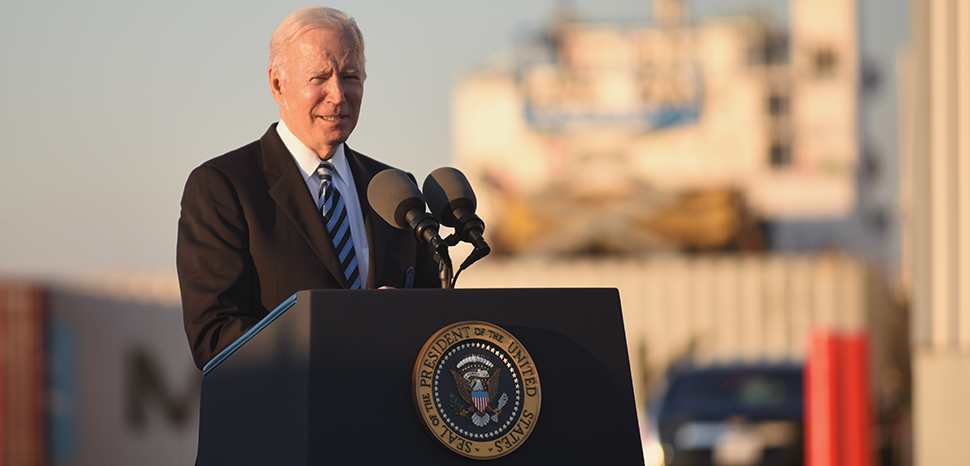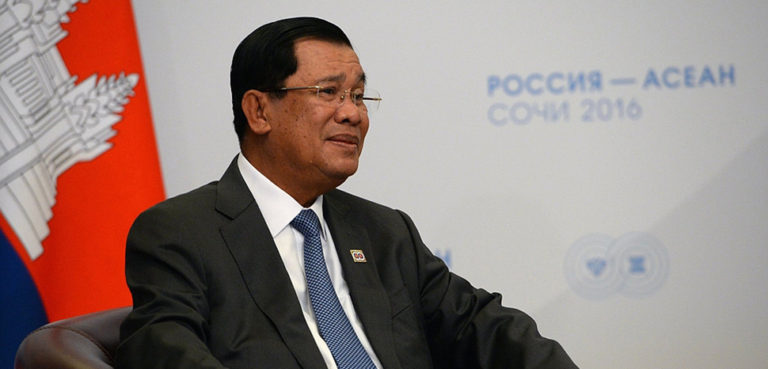Leaders of the ten Association of Southeast Asian Nations (ASEAN) states are meeting in Jakarta between now and September 7, with the 10-member bloc under fire from two major fronts—the lingering crisis in Myanmar that has divided member-state loyalties and renewed tensions in the disputed South China Sea, where outcomes not only affect regional states, but have worsened US-China relations. However, the 2023 Summit will be without the leader of the free world, as US President Joe Biden has elected to skip the regional gathering in favor of the upcoming G20 Summit hosted by India, followed by a personal visit to Vietnam, where the United States aims at enhancing bilateral ties.
Biden’s absence at the ASEAN Summit has already been felt. Biden’s presence would have elevated the stature of ASEAN in the middle of its existential crisis, where many diplomats have already suggested that the relevance of the body itself is at stake. While seemingly unrelated, with Chinese President Xi Jinping already absent and replaced by Chinese premier Li Qiang, Biden’s absence sends an additional signal of ASEAN’s relative insignificance, but also misses an opportunity to reassert American influence over the troubled body. Sending Vice President Kamala Harris, a relative foreign policy neophyte with few trips of significance other than her confrontational speech in Vietnam in 2021, is a missed opportunity, despite her Asian heritage.
US foreign policy in Asia is at a critical crossroads. Biden’s absenteeism is already a problem for countries attempting to balance their relationships with both China and the United States, as many would prefer to a stronger US presence against the backdrop of mounting Chinese aggression both in the South China Sea and through its Belt and Road (BRI) initiative. The Asia-Pacific region has already felt the sting of Biden’s absence from the APEC Summit held late last year in Thailand, again with Harris filling in at the all-important Asia-Pacific Economic Cooperation Leaders’ Meeting (APECLM) in Bangkok. Biden’s APEC absence was deemed a “snub” by Thailand, a long-time partner with a new semi-democratic government that could benefit from closer attention in Jakarta.
This neglect makes US national security spokesperson John Kirby’s recent words seem hollow, as he told reporters, “It’s hard to look at what we’ve done as an administration…and come away with a conclusion that we are somehow not interested in the Indo-Pacific or that we are deprioritizing the Southeast Asian nations…” Hardly, and quite the contrary. It’s being noticed, as former Indonesian Foreign Minister Marty Natalegawa noted, Biden’s presence in nearby India and Vietnam makes his absence “all the more glaring than would otherwise be the case.”
With Myanmar a pressing agenda issue, the United States will not have a senior diplomat on hand with the caliber of foreign policy experience as Biden. Plus, the lack of significant US presence sends a message that Biden’s foreign policy is incapable of multitasking, with most of Biden’s attention in recent months focused on the war in Ukraine, while making multiple verbal missteps in defining US Taiwan policy and accusing the Chinese of “economic coercion.”
To many opponents of Myanmar’s military government, a US presence, with the prospect of additional regime-killing sanctions, would put additional pressure on Myanmar’s Gen. Min Aung Hlaing. Furthermore, such a showing could elicit action from fence-sitting countries, forcing them to either further engage with the ruling State Administration Council (SAC) or cease doing business with Naypyidaw altogether. While the United States recently targeted two state-owned banks, the Myanmar Foreign Trade Bank and the Myanmar Investment and Commercial Bank, a much greater impact would be had if sanctions were imposed against Myanmar Oil and Gas Enterprise (MOGE), a critical lifeline of foreign revenue to the junta. US pressure could also help halt the “death trade,” a term coined by UN Special Rapporteur for Myanmar Thomas Andrews, who revealed in May that the trade of as much $1 billion in arms and raw materials that can be used for military purposes comes from two ASEAN countries, Singapore and Thailand, as well as China, who is a member of the ASEAN-Plus Three.
Finally, in the South China Sea, multiple ASEAN states are troubled by deteriorating conditions. While the U.S. has assured some, such as the Philippines through improved security ties, the issues are far more intricate and may require a degree of mediation. Vietnam for example, has raised issues with both China and the Philippines, asserting that their presence had “[violated] the sovereign rights and jurisdictions of Vietnam” and would look into taking “appropriate action”. The issue goes beyond security into areas of local livelihoods, as hundreds of Chinese fishing boats have made incursions this year into areas around the Niu’e Reef, which Philippines claims is within its Exclusive Economic Zone (EEZ). Additionally, the issue of China’s expansion of its territorial claims has angered many other ASEAN states, including Malaysia, as China’s new map includes a 10-dash line that overlaps parts of what Manila claims is the West Philippine Sea. Biden’s absence signals to ASEAN states that is there not only the lack of a consistent regional approach, but ASEAN states are largely left to their own devices—a far departure from the “quiet diplomacy” of the past, where Washington attempted to caution member states against aggressive retaliation policies.
What Biden forgets in choosing to skip the ASEAN Summit is that the United States is not only reinforcing the notion that the relevance of ASEAN is on the decline, but that the absence of US leadership increases the odds that the only tangible outcome of the Summit will be reports of additional internal chaos and continued member-state frustration. By skipping the Summit, Biden chose to avoid both a critical opportunity to lead and to craft policy-oriented solutions, which reinforces a long-held narrative that Washington yet to change its half-hearted effort to the region, much to the advantage of Beijing.
The views expressed in this article belong to the authors alone and do not necessarily reflect those of Geopoliticalmonitor.com.




